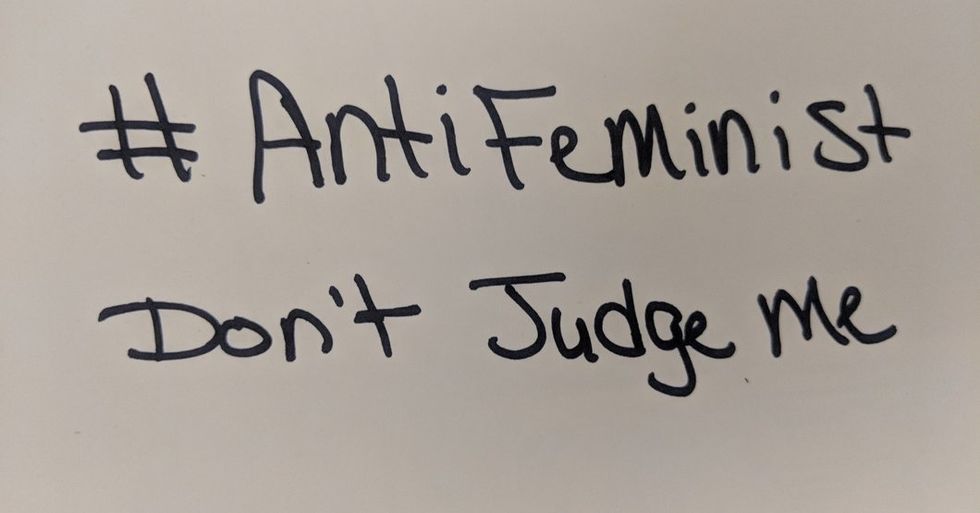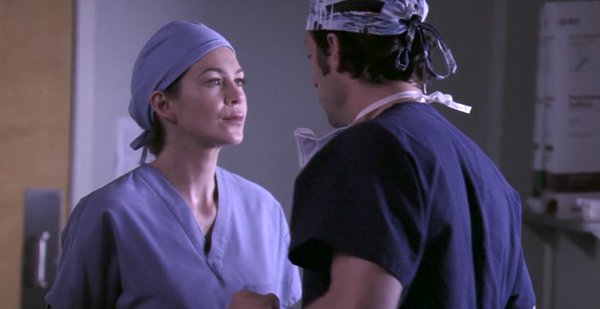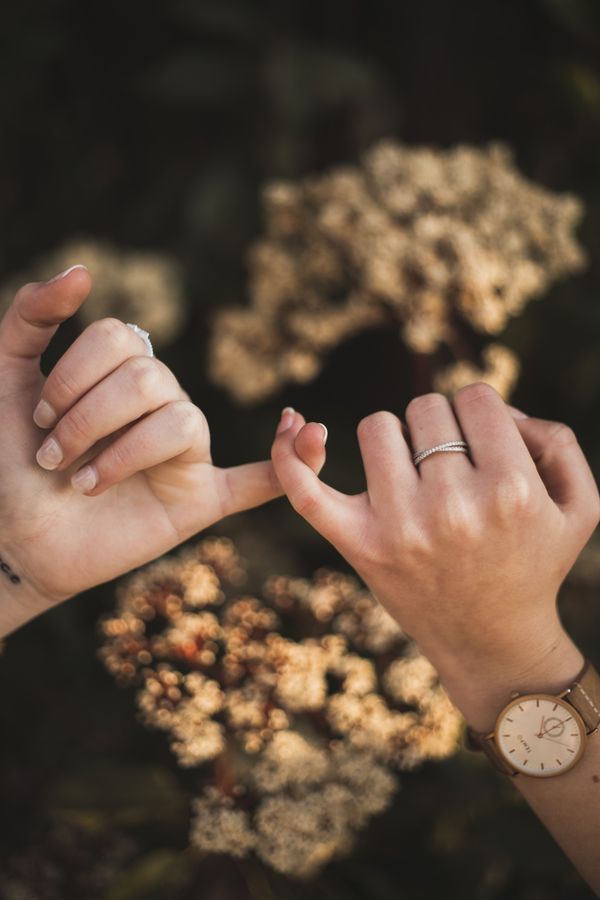I Used To Be An Anti-Feminist, But Educating Myself About Feminism Changed My Opinion
This is why I changed my mind.
Odyssey has seen quite a few articles written by women who disagree with modern feminism, and they are almost always met with a lot of backlash. Personally, I don't agree with these women's opinions, but I feel strongly that these are important discussions to have, and most importantly, not labeling one's self as a feminist doesn't mean you hate women and believe oppression is a good thing.
The definition of a feminist boils down to an individual who believes all genders should be treated with equal opportunity and respect.
So how did something so simple, and seemingly ubiquitous, get so complicated?
At the end of the day, modern feminism barely has an overarching definition beyond that. There are so many different schools of feminism, each with its own answers to the question of how we as individuals and a society combat sexism and promote gender equality. Mainstream feminism, liberal feminism, radical feminism, sex-positive feminism, intersectional feminism, the list goes on and on. Literally, any ideology you have, there's probably a branch of feminism for that. There are many situations in which two self-identified feminists find themselves strongly disagreeing on a very pertinent topic.
That's why it's so important we don't oversimplify.
I remember first being exposed to feminism around the time I started going on the internet on my own during middle school. Growing up, I was always under the impression that, in the Western world at least, women had achieved equality once and for all in the 1970s or so, and from then on out, discrimination was over.
So naturally, when I saw women online talking about their experience of oppression, I found myself rolling my eyes. After all, I had never personally experienced sexism! I was never told I couldn't be smart, I was encouraged to play sports, nobody restricted my career options.
I also felt somewhat personally attacked because I have always presented as traditionally feminine appearance-wise, and I wasn't that sporty like the other girls at my school. I thought that feminism was attacking my lifestyle and telling me I was oppressing myself. All the men and boys in my life treated me like an equal (or so I thought), so what was all the fuss?
Only once I got to high school did I see how skewed my view was.
I went to private school from preschool through 8th grade. At least 90% of my school was white. Pretty much everyone was well off. I thought that's how the whole world was. I lived in a bubble.
Never did I question our school's sexist dress code nor the comments one male teacher made towards me when I wore tank tops to school on hot days despite the rules ("You know you don't need to dress like that to get boys' attention!"). Never did I question the internalized misogyny that caused me to feel insecure for wearing dresses when all my female classmates were wearing jeans and told me being "girly" was the same as being weak and stupid. Never did I question the messages I received about female sexuality (like that masturbation was gross and embarrassing).
More than anything, I wanted desperately to avoid being told that I belonged to an oppressed group. As human beings, we want to feel empowered. When I was told I should support feminism because I, as a girl, was at a disadvantage in the world, I rejected it. I was uncomfortable, just as I was uncomfortable admitting that, growing up in a white family in a wealthy community, I had had a lot of privilege and I was often sheltered. And even with that privilege, I had indeed experienced sexism, I just wasn't educated enough on the topic to recognize it and stand up to those who were acting unfairly. I didn't realize that criticizing behavior by men was not the same as saying all men are sexist pigs.
I didn't realize that feminism had never been about hating men or dismissing issues men face, such as higher incarceration rates, decreased likelihood of reporting domestic abuse or sexual assault, bias in custody battles, toxic masculinity, and more. Effective feminist movements address these issues as well, believing that they are also a product of the patriarchy, just as the oppression of women is.
The biggest reason I changed my mind was that I connected with people who actually wanted to have a dialogue. To hear what I had to say and, based on that, educate me as to how my dislike of modern feminism was based on misinformation and misunderstanding. I try to continue to use this strategy now, especially because a lot of people who claim to be against feminism don't realize how many different schools of thought there really are. There's a good chance that even if you have a different viewpoint from mainstream feminism, there is a type of feminism which does align more with your beliefs.
We all want to see a world where women and men are on the same playing field. We just have different beliefs on how we, as a society and as individuals, can get there and what exactly a world of equality looks like. So, to anti-feminists: instead of making blanket statements about your attitude towards a movement with a lot of ideological diversity, take time to understand the nuances, and maybe reconsider. You might be surprised by what you find.

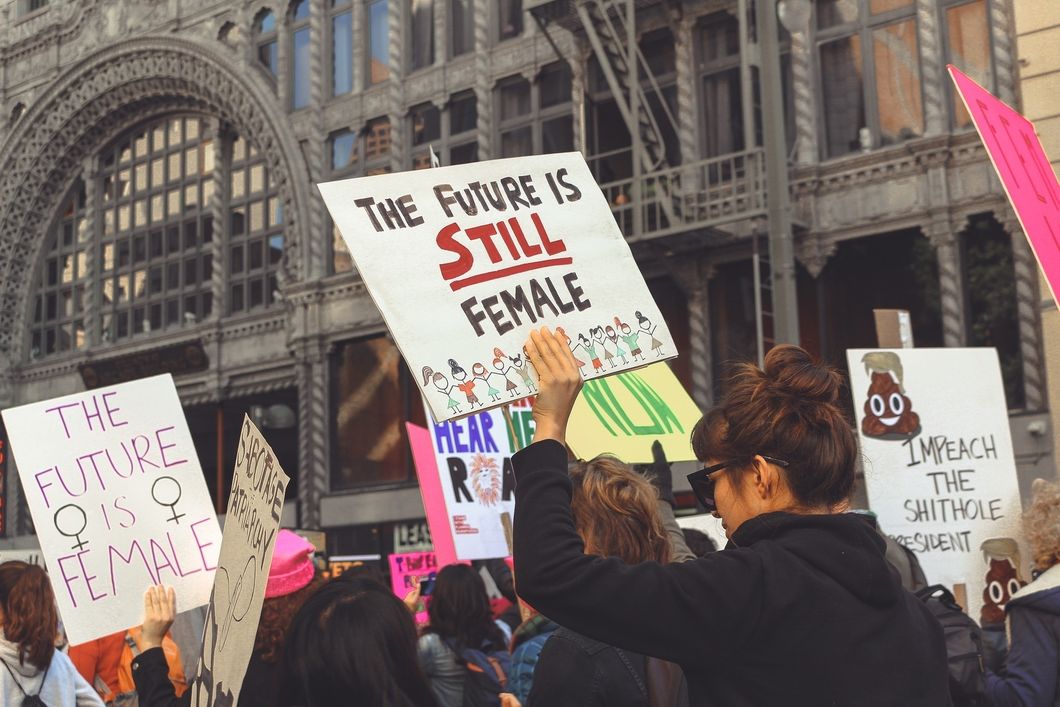


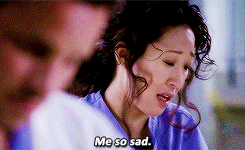
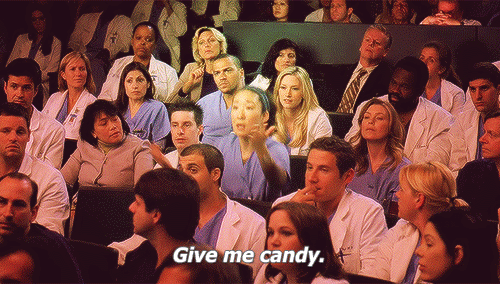
 Giphy
Giphy
